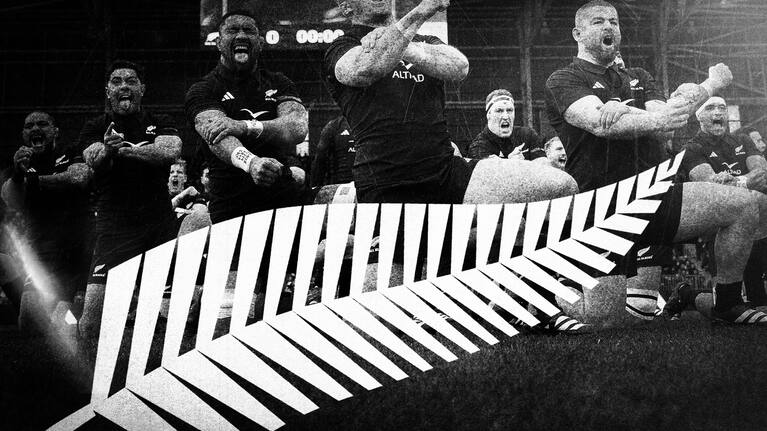Scotty Stevenson reflects on rugby’s latest wake-up call and ponders how consensus can be found to ensure the sport’s survival.
By now you have probably read all you would ever want to about the latest review into New Zealand Rugby. This one, complete with the catchy title, “Independent review of the constitution, governance structure and processes of the New Zealand Rugby Union Incorporated”, slipped quietly into inboxes yesterday following months of interviews, submissions, and town hall meetings. It was the ninth NZR review in the last six years.
Its 133 pages contained plenty to digest, and that is exactly what the Chair of New Zealand Rugby, Dame Patsy Reddy, and the collective Chairs of the Provincial Unions said they would all take time to do. Fair enough.
The report is about them, it’s also about their predecessors, and – most importantly – it’s about those who will follow. It was as much an admonishment of the current situation as a dire warning to pause and reflect ahead of an uncertain future.
Rugby Union, the sport that more than any other in this country claims the be ‘the national game’, is very much at a crossroads. No, that’s a nonsense.
The sport has been staring at a compass in a room full of magnets trying to find true north for decades. It has made some incredible strides into the professional world, but so rapid was that march, and so rabid the appetite for the cash, those in charge have often seemed to care not a jot that those in their charge have been left trailing in the distance.
In essence, NZR’s roulette table strategy (heavily criticised in the report) has been the same for years: put it all on black.
The unions, rightly lambasted for misguided thinking around their perceived ‘ownership’ of NZR (or anything for that matter), were happy to go along with that plan as long as the coins kept falling from the counting table. When they stopped, the unions did what they have always done: put another person at the table.
Power of the players
The unions can’t carry the can for all of this (and won’t), and NZR can’t and won’t either. The Rugby Players’ Association won’t, and for all the power the players’ union - let’s call it what it is - wields in the game, it is of endless intrigue to this correspondent that barely a mention of them was made in the report. This is, after all, the organisation that has negotiated the collective contracts, ringfenced a hefty chunk of all commercial revenues for the players, and at whose insistence the review was launched.
One wonders, how many of its members, the players, will be sitting around the dining room table reading all 133 pages into the sport that pays them? I’ll hazard a guess. With one hand.
Rugby, once the centrepiece of New Zealand’s egalitarian myth, is most definitely no longer (if it ever truly was) the game for everyone, and its constituents are no strangers to self-interest.
The Unions have squabbled for years and NZR, Formerly NZRU, has quite the history of intimidation and arrogance. That is not to say everyone who has held office has operated with malicious intent. But the organisation, at its upper reaches at least, does things to people.

Precisely because of the aforementioned self-interest, and the grasping nature of the servant-master relationship that has been fostered between the unions and the NZR, the rarefied air of the corporate box at an All Blacks test has always been seductively scented for those desperate to wear the black blazer and tie of the NZR board member.
That ridiculously anachronistic affectation should be the first thing removed from future boards. Just put on a suit and stop pretending you’re in the team.
Rugby’s adherence to these hair-brained hidebound traditions obscures and subverts its oft stated desire to be a more modern option for the next generation.
The report highlighted the challenge to player numbers and retention, and the need for greater fan engagement, but instead of dyed-in-the-wool connection snowballing organically into lifetime love, the fans are served a steady diet of third-party influence. Not for rugby the club songs of the AFL, or the chants of the Premier League Football, or anything like “Up the Wahs!”. Rugby fans will get Six60 and endless Instagram feeds of the dude who plays a merman, fanboying frontrowers.
And they will enjoy it, because…Rugby!
Big money deals
This is a sport that, in spite of the multi-million dollar deals with Swiss watchmakers, and British plastics manufacturers, and German apparel giants, and a corrupt French billionaire, still has – at its atrophied heart – Saturday mornings and halftime oranges. It has mandatory mouthguards and bare feet on frosts.
It is a sport with cheap jugs at the clubrooms, and the smell of liniment and darts in the sheds. It has communities it serves, and kids whose characters can be built in the breakdown. It has underappreciated referees, and overworked club captains.
It has sons and dads and mums and daughters, and Grandparents who met on the side line. It has the thrill of the win and the pain of the loss. It has the trophies raised on finals days, and the friends made for life. It has representative honours and carries the hopes of small towns.
If nothing else, and when this report has been fully digested, perhaps all those people in positions of power will come together and will talk about what leadership must look like in the service of the rugby’s next great vision.
And it would be helpful to think about all of those things that still lend this game its true value, as a sport and as something we, all of us, can rightly call our game.





















SHARE ME